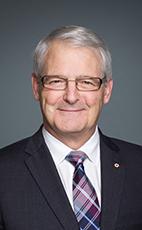Mr. Speaker, I totally reject the premise of that question. We have always been very clear that in our new, open, transparent, merit-based process also looks at diversity, including gender diversity. We are looking for the best and most qualified people to occupy these important positions in our port authorities. I am very proud of the selection we have made for the fine Port of Halifax.

